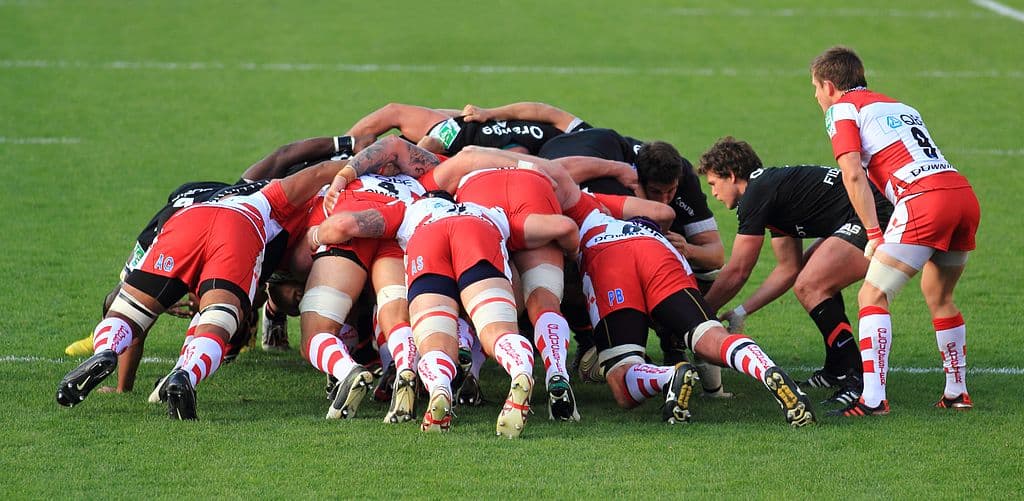Rugby is more than just a sport. It is a majestic blend of history, culture and spiritual heritage that embraces a global community. Since its inception in the 19th century, rugby has won the hearts of millions, becoming a symbol of courage, respect and, above all, the unyielding fight of the spirit. From traditional khaki performances to heroic moments on the battlefield, every aspect of the game is filled with deep meaning. In this article, we will reveal five unusual and informative facts about rugby that will highlight the unique features of this amazing sport, reinforcing your love and admiration for it.
A historic moment: from soccer to rugby
The historical transformation from soccer to rugby is deeply embedded in the lore surrounding William Webb Ellis, a student who, in 1823 at Rugby School in England, reportedly broke the conventional rules of soccer by picking up the ball and running with it. This rebellious act is celebrated as the birth of rugby, marking a departure from soccer and laying the foundation for a sport that would grow to have a global following. Despite the ongoing debates about the story’s accuracy, Ellis’s legacy endures, epitomized by the Webb Ellis Cup, awarded to the Rugby World Cup victors, symbolizing innovation and bravery in the sport’s evolution.
Rugby’s spread from the fields of an English school to the world stage, splitting into rugby league and rugby union with distinct rules and traditions, demonstrates its adaptability and universal appeal. The origins of rugby at Rugby School, where the first formalized rules were penned, highlight the sport’s rich heritage. Today, rugby’s global presence and the enduring tale of William Webb Ellis serve as a testament to the sport’s ability to inspire courage, creativity, and a passionate commitment, proving that a single moment of defiance can give rise to a lasting cultural and sporting legacy.
The geography of rugby: not just the Big Six countries
Rugby, often associated with the power and dynamism of the “Big Six” countries of England, Wales, Ireland, Scotland, France and Italy, actually has a global reach that extends far beyond these historic centers of sport. With roots dating back to the 19th century, the sport has found its place in the hearts and culture of many peoples around the world, demonstrating its versatility and ability to adapt to different social and cultural contexts.
Beyond the European continent, Japan has been at the forefront of rugby expansion with impressive achievements on the international stage, including memorable performances in the Rugby World Cup. This shows that rugby is succeeding even in countries that are not traditionally associated with the sport. On the other hand, Fiji, an island nation in the Pacific
Ocean, has turned rugby sevens, a lighter and more dynamic version of traditional rugby, into its national sport. The success of Fijian teams in international competitions, including the Olympics, where rugby sevens has been an Olympic sport since 2016, underscores the exceptional talent and passion for the game among its people.
These examples only reveal a little of rugby’s geographical diversity, emphasizing its global presence and love for a game that crosses cultural and geographical boundaries. From the islands of the Pacific to the heart of Asia, rugby continues to expand its horizons, attracting new fans and players, making it a truly global sport.

Olympic gold and rugby
The revival of rugby as an Olympic sport in 2016 at the Rio de Janeiro Games with the inclusion of a version of rugby sevens has had a tremendous impact on the popularity of the game globally. Rugby Sevens is a faster and more dynamic version of traditional rugby, with seven players from each side on the field at a time. The smaller number of players and shorter match times have made it an ideal candidate for Olympic competition, where games typically require a compact time frame and high spectacle. The success of rugby sevens at the Olympics has confirmed its place among the world’s leading sporting disciplines, attracting new fans and players to a sport that has traditionally been considered a niche sport.
However, many people are unaware that rugby has deep Olympic roots, stretching back to the early 20th century when 15-a-side rugby was introduced to the Olympic Games. Rugby first appeared on the Olympic stage in Paris in 1900 and was included in the Games program several more times – in 1908, 1920 and most recently in 1924, also in Paris. Here are some of those Olympic rugby tournaments:
- 1900, Paris: The first Olympic rugby gold medal is won by the French team.
- 1908, London: Gold medals were won by the Australian team in a tournament called Australasia.
- 1920, Antwerp: The gold medal went to the USA team, who participated in the Olympic rugby tournament for the first time.
- 1924, Paris: The USA won gold again, surprising the world with their success in a traditionally European sport.
Haka is more than a dance
The haka performed by the New Zealand rugby team, known as the All Blacks, before every match is not just a martial dance, but a powerful symbol deeply rooted in Māori culture. This ritual transcends sporting tradition, becoming a bridge between past and present, and showing respect for New Zealand’s history and cultural heritage. Haka is more than a challenge or intimidation; it is an expression of identity, strength, pride and unity, allowing each player to feel connected to their country’s history and culture.
Performing the haka before All Blacks games serves not only to motivate players and show their determination to win, but also as a way to respect opponents by offering them a chance to be part of a unique cultural moment. Haka unites players, inspiring them to outstanding athletic achievements while energizing and inspiring thousands of fans in the stands and behind television screens around the world. The dance has become an integral part of global rugby culture, symbolizing a unique combination of sporting passion and deep cultural significance.
Rugby without gloves
In rugby, unlike American soccer, players perform without gloves, which places additional demands on their technique in holding, passing and receiving the ball. This element adds complexity and uniqueness to the game, highlighting the skill of players who can effectively manipulate the ball in all conditions without additional means to improve grip. The absence of gloves not only emphasizes the physical and technical aspects of the game, but also celebrates its roots by valuing naturalness and direct contact with the ball, which fosters a deeper understanding and engagement with the game. In this way, rugby not only showcases players’ physical resilience and technical skills, but also acts as a platform to develop their psychological qualities, teaching them respect, teamwork and steadfastness in the face of adversity, making the game truly unique in the global sporting arena.




